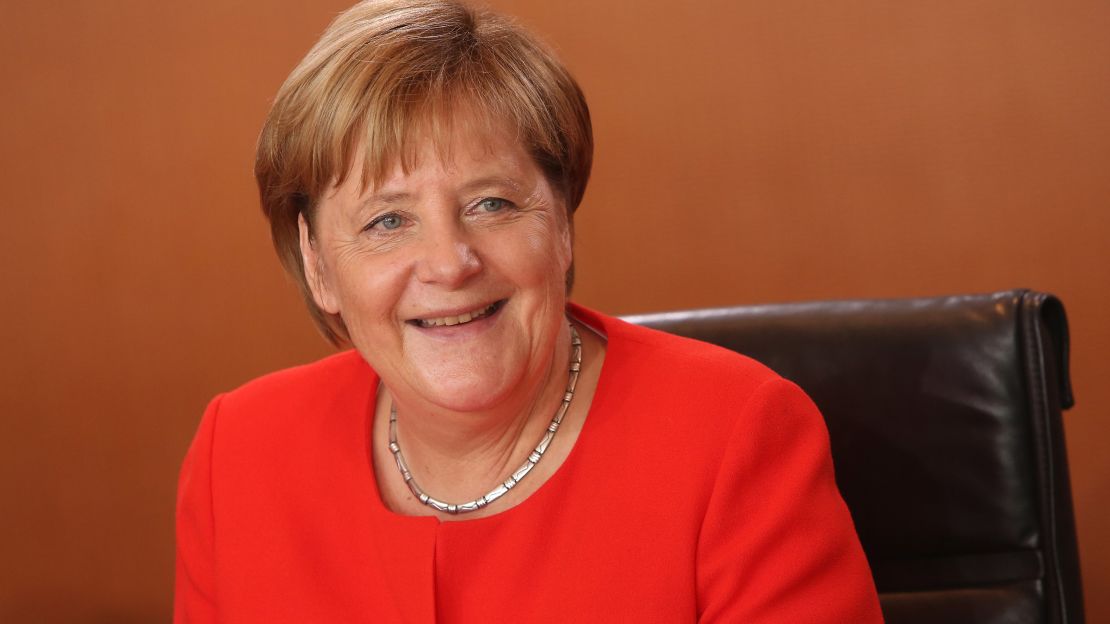The German government has announced that its arms exports fell by close to 23% in 2018 compared to the previous year.
In figures provided to CNN by the German Economy Ministry, total arms exports fell by 22.75% in 2018 from 6.24 billion euros ($7.10 billion) in the previous year to 4.82 billion euros ($5.49 billion). The downward trend in the country’s arms exports has been witnessed every year since 2015, when Germany exported a record-breaking 7.86 billion euros.
A ministry spokesman cited Chancellor Angela Merkel’s decision in October 2018 to halt all arms sales to Saudi Arabia after the killing of journalist Jamal Khashoggi in Istanbul as a reason for the sharp decline.
“The Chancellor clarified to the federal government shortly after the discovery of the Khashoggi case that there was no longer grounding to sell arms to Saudi Arabia,” he said in a statement provided to CNN.
The ministry confirmed that Germany had not changed its position regarding exports to Saudi Arabia in the intervening months, and noted that no sales had been made to the Middle Eastern nation in the fourth quarter of last year.
“There are currently no permits for arms exports to Saudi Arabia,” the spokesman confirmed.

Speaking to members of her Christian Democratic Union (CDU) party in October, Merkel said: “I agree with all those who say, that the already limited arms exports (to Saudi Arabia) cannot take place in the current circumstances.
“There is an urgent need to clarify what happened – we are far from this having been cleared up and those responsible held to account,” she said regarding the Khashoggi case.
The moratorium on arms sales to Saudi Arabia, however, is only believed to be valid until March this year, according to German news site Deutsche Welle, when the German government will be obliged to decide whether or not to maintain the ban or relax it.
The ministry spokesman nevertheless confirmed to CNN that Germany has “one of the most restrictive and rigorous arms exports regimes in the world.” He also confirmed that Berlin is “very transparent” in regards to its arms export policy.
Notably, the federal government publishes a thorough report on its arms exports twice a year for the federal government and the public to scrutinize.
Andrew Smith from the Campaign Against Arms Trade welcomed Germany’s reduction in arms sales, but questioned why the country had taken so long to restrict exports to countries including Saudi Arabia.
“The German government was right to halt arms sales to Saudi Arabia, and we hope that it will set a precedent for the other arms dealing governments in Europe to follow,” he told CNN.
“However, the arms sales should never have been allowed in the first place. For decades now, the Saudi regime has had one of the most appalling human rights records in the world, and since 2015 it has waged a brutal war on Yemen. It should not have taken the murder of a journalist for the German authorities to act.”
Smith noted that it is important to halt arms sales not solely in the short term, but also to “end the mindset that allowed them to happen for so long.” He expressed hope that the reduction seen in 2018 will be the “start of a wider look at Germany’s arms export policy,” and that the country will build on 2018 to halt all arms sales to other dictatorships and human rights abusers.
Figures provided by the economy ministry to German politician Sevim Da?delen and seen by CNN, however, reveal that Germany is continuing to export large amounts of arms to other Middle Eastern nations.
In particular, arms exports amounting to 40,188,518 euros were sold to the United Arab Emirates in the fourth quarter of 2018, and 55,882,061 euros worth of arms were sold to Qatar in the same period.

